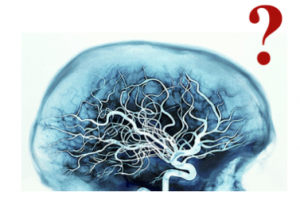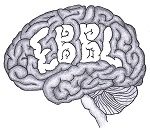Schizophrenia as Split Personality: Jekyll and Hyde?
Dr. Henry Jekyll was a “large, well-made, smooth-faced man of fifty with something of a stylish cast”, who occasionally felt like he was battling between the good and the evil within himself, thus leading to the struggle between his dual personalities of Jekyll and Edward Hyde. He created a potion, in an attempt to mask this hidden evil within his personality. In doing so, Jekyll accidentally transformed into Mr. Hyde, a hideous, evil creature without compassion or remorse.
The strange case of Dr. Jekyll and Mr. Hyde is a well-known example of a psychiatric disorder, commonly known as split personality. Clinically known as dissociative identity disorder, split personality is a mental disorder that is characterized by “at least two distinct and enduring identities or dissociated personality states that alternately control a person’s behavior”. It is also accompanied by memory impairment for important information that can’t be explained by ordinary forgetfulness. Doesn’t really sound like a psychiatric symptom that patients with schizophrenia suffer from, does it?

Does schizophrenia mean split personality? Contrary to public perception, people with schizophrenia do not have split personalities.
Unfortunately, there is a common misconception in society that schizophrenia is the same as a “split personality”. The word “schizo” does indeed mean “split”. However, Eugen Bleuler, who coined the term schizophrenia in the 1920s, was describing the rupture in the person’s thinking process and emotional response when he coined the term. In today’s blog post, I will talk about this “split” in schizophrenia, not as a Jekyll and Hyde syndrome, but in terms of the discrepancies between a schizophrenic patient’s emotional experience and facial expressiveness.
In 1993 Kring et al. conducted a groundbreaking research study on the disjunction among emotional response domains in schizophrenic patients. This was a time when affective features of schizophrenia had only begun to receive empirical attention. Kring et al. (1993) examined the relationship between emotional experience and expression in a sample of medication-free schizophrenics. The results of this study indicated that compared to healthy control subjects, “people with schizophrenia were much less facially expressive of both positive and negative emotions during emotion-eliciting films. However, they reported experiencing as much positive and negative emotion as the healthy control subjects”. The findings of Kring et al’s (1993) study were crucial in proving that clinical blunting ratings of facial expressivity (flat affect) in schizophrenia do not reflect diminished emotional experience in this population.
Another study focusing on this disjunction was conducted by Aghevli et al. in 2003. They wanted to investigate whether this disjunction between emotional experience and expression in schizophrenia extends to the interpersonal domain. Previous literature had focused solely on a number of non-social stimuli such as film clips while examining this discrepancy. Aghevli et al. (2003) compared patients with schizophrenia and non-psychiatric controls during a social role-play. The results indicated that “patients were significantly less expressive than controls but the two groups reported equal levels of emotional experience”. These results extended the prior findings of the expression/experience disjunction in schizophrenia to a social domain. This way, their findings made this disjunction more relevant to understanding poor social functioning and interpersonal interaction difficulties experienced by people with schizophrenia.
After reading about these thought-provoking empirical findings, the question that arises: What are the neural substrates of this expression/experience disjunction in a brain suffering from schizophrenia?
 A literature review will show that there is no MRI study that specifically investigates the neuronal dysfunctions or abnormalities that could potentially be the primary cause of this experience/emotion dissociation in schizophrenia. However, there are a number of more general fMRI studies that look at the dysfunction of emotional brain systems in schizophrenia with a focus on amygdala abnormalities. Aleman et al.’s 2005 study hypothesizes that specifically, “a lesion to the amygdala in combination with reduced interconnectivity with the prefrontal cortex potentially give rise to reduced emotional expression (affective flattening) and emotion recognition deficits”. Such abnormalities in the structure of the amygdala as well as disconnections in frontolimbic pathways could potentially be one of the main causes of such expression/experience dissociation in schizophrenics.
A literature review will show that there is no MRI study that specifically investigates the neuronal dysfunctions or abnormalities that could potentially be the primary cause of this experience/emotion dissociation in schizophrenia. However, there are a number of more general fMRI studies that look at the dysfunction of emotional brain systems in schizophrenia with a focus on amygdala abnormalities. Aleman et al.’s 2005 study hypothesizes that specifically, “a lesion to the amygdala in combination with reduced interconnectivity with the prefrontal cortex potentially give rise to reduced emotional expression (affective flattening) and emotion recognition deficits”. Such abnormalities in the structure of the amygdala as well as disconnections in frontolimbic pathways could potentially be one of the main causes of such expression/experience dissociation in schizophrenics.
To conclude, currently emotional processing in people with schizophrenia is an exciting and ever-growing area of research. Functional and structural neuroimaging has gained remarkable popularity in localizing brain-areas related to deficits in emotional and cognitive processing. The clinical implications of such findings are crucial in that they can guide clinicians in setting more effective treatment plans for patients with schizophrenia, that not only address the positive symptoms of the disease but also the negative symptoms that are based on emotion deficits such as the expression/experience disjunction. Tune in next week to learn more about the ever-growing gap between treatment priorities and unmet needs of the patients in terms of negative symptoms!
Sources:
- Aleman A, Kahn RS. Strange feelings: Do amygdala abnormalities dysregulate the emotional brain in schizophrenia? Progress in Neurobiology (2005) 77 (5): 283–29.
- Aghevli, M. A., Blanchard J. J., Horan W. P. The Expression and Experience of Emotion in Schizophrenia: A Study of Social Interactions (2003) 119:261-70.
- Kring A. M, Kerr S.L., Smith D.A., Neale J.M. Flat Affect in Schizophrenia does not Reflect Diminished Subjective Experience of Emotion. Journal of Abnormal Psychology (1993) 102(4): 507-17.
- American Psychiatric Association. Diagnostic and Statistical Manual of Mental Disorders: DSM-5. (2013). Washington, D.C: American Psychiatric Association.
- Ashok, A.H., Baugh J., Yeragani, V. K. Paul Eugen Bleuler and the Origin of the Term Schizophrenia. Indian Journal of Psychiatry (2012) 54(1):95-96.
- Stevenson, Robert Louis. The Strange Case of Dr. Jekyll and Mr. Hyde. NewYork: Dover Publications Inc., 1991. Print.Schizophrenia. Indian Journal of Psychiatry (2012) 54(1):95-96.
- Fig 1. http://skeptikai.com/wp-content/uploads/2012/06/WEBsplitpersonality.jpg
- Fig 2. http://photos2.demandstudios.com/dm-resize/photos.demandstudios.com%2Fgetty%2Farticle%2F88%2F112%2F87577833_XS.jpg?w=400&h=10000&keep_ratio=1
- Fig 3. http://static.guim.co.uk/sys-images/Guardian/Pix/pictures/2010/04/08/Brain-scan.jpg

